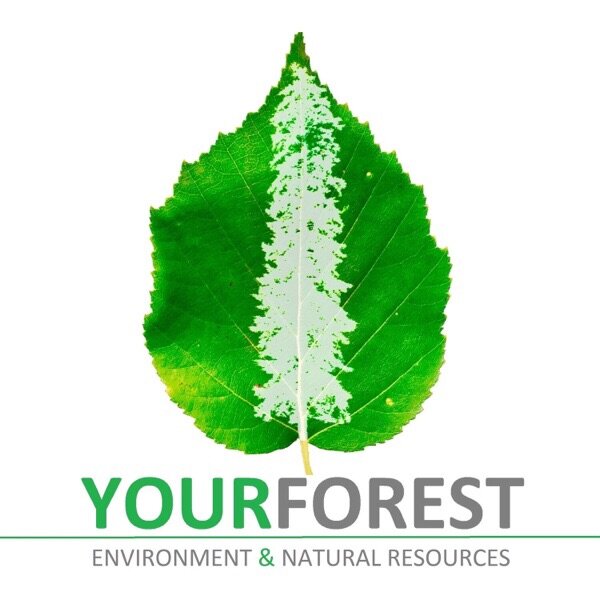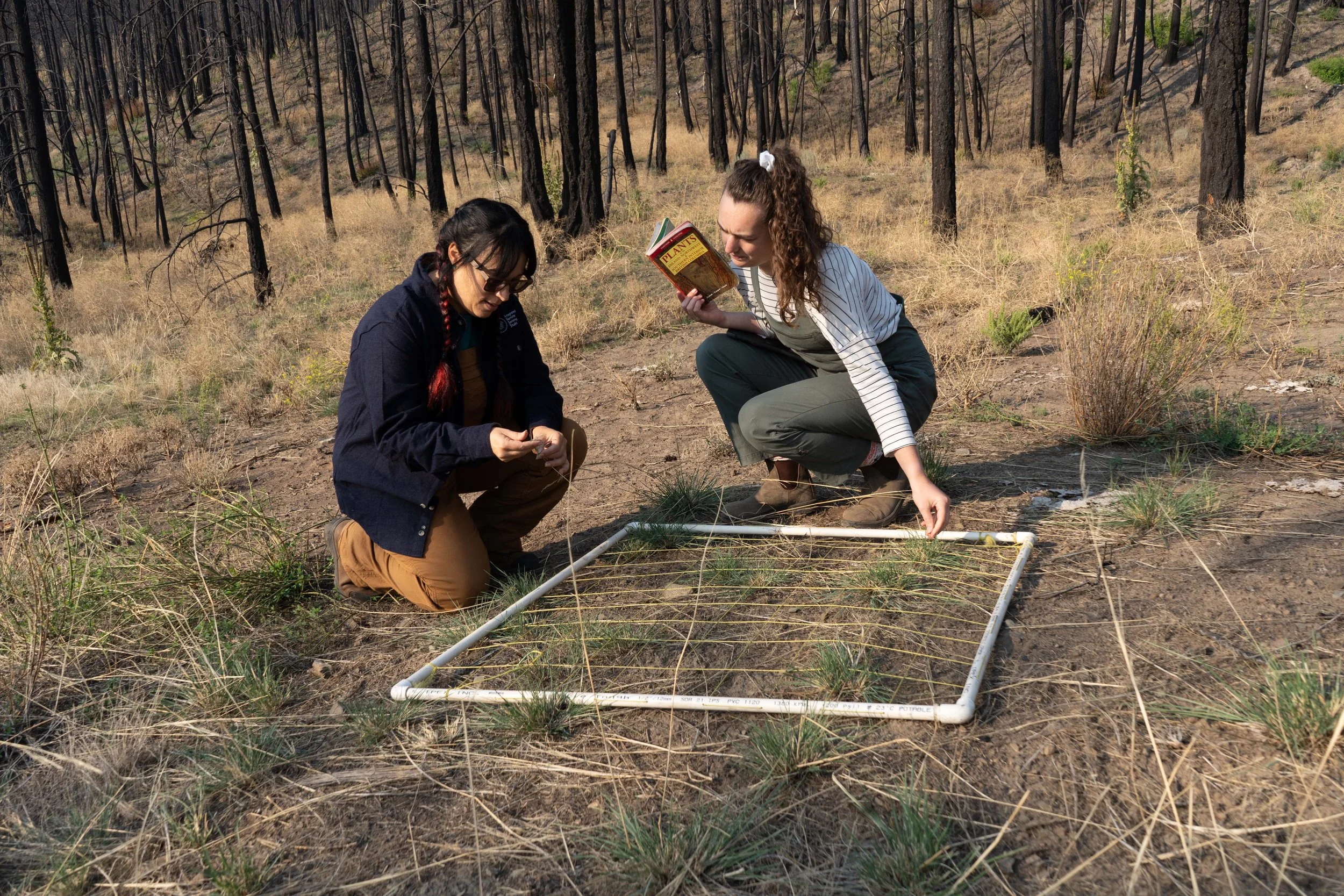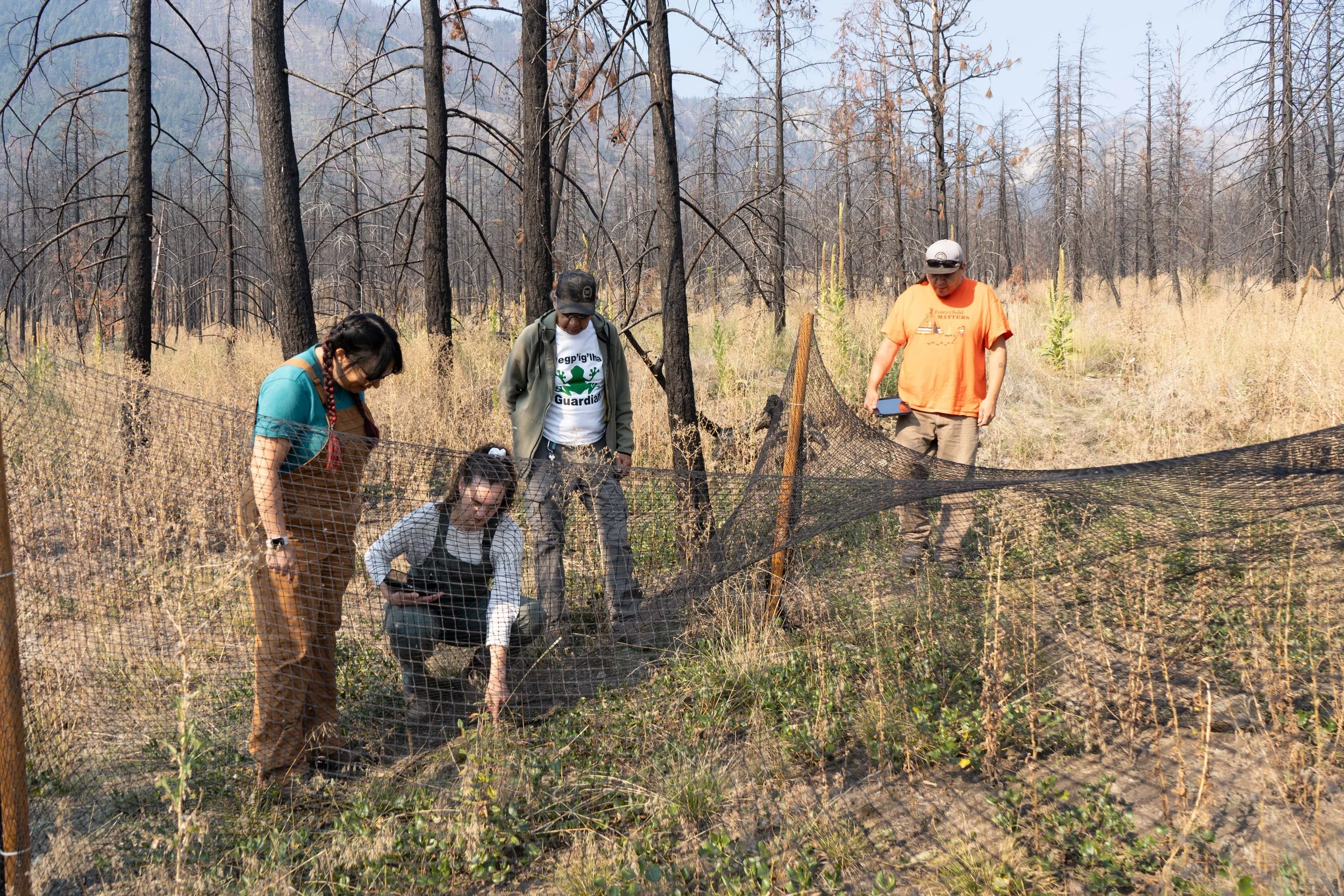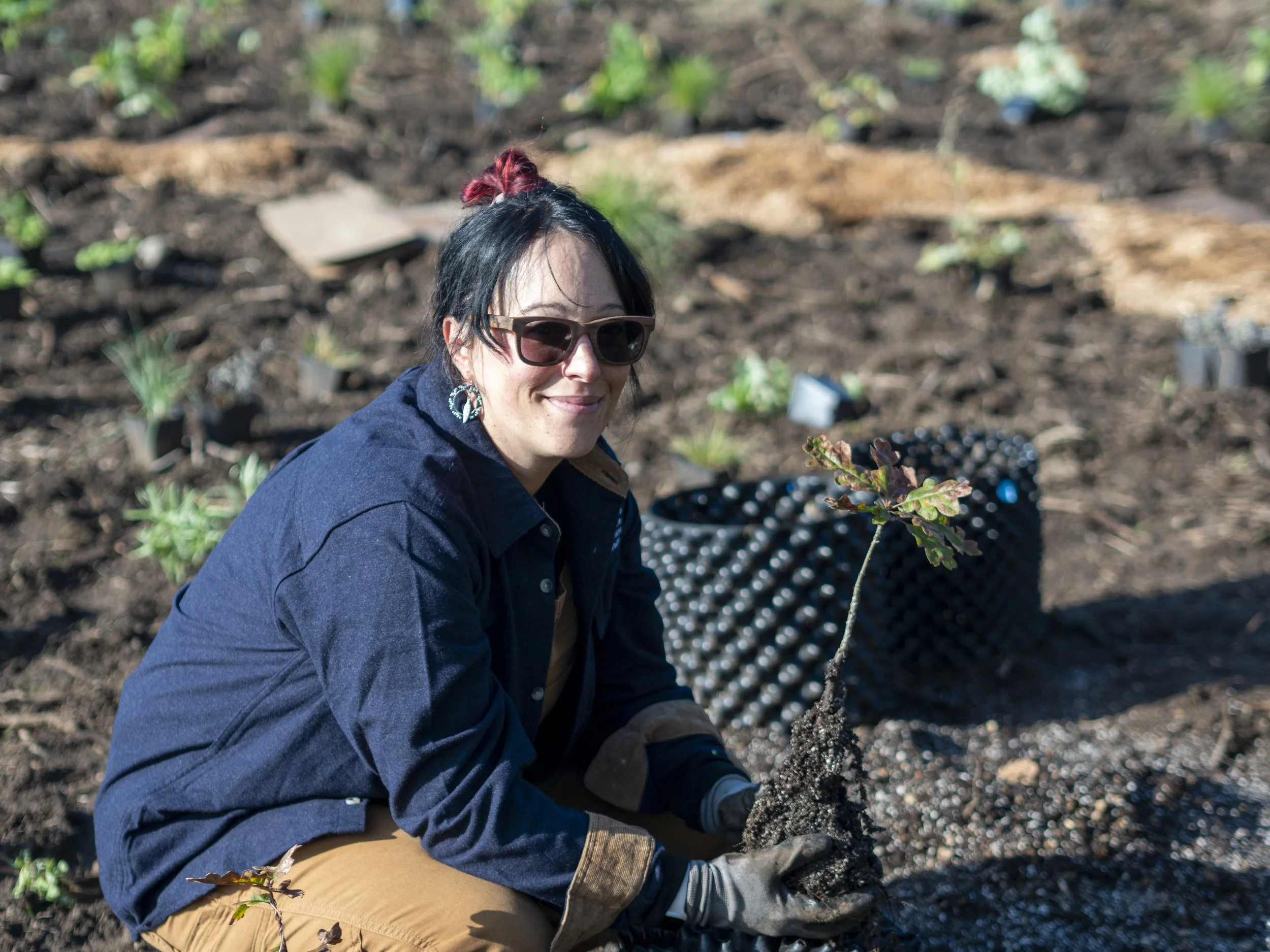ALSO YOU CAN LISTEN ON
In this episode of YourForest, Matthew Kristoff sits down with Dr. Jennifer Grenz to discuss the critical topic of decolonizing land stewardship. This powerful conversation explores the necessity of being "rooted in truth" and acknowledging the true history and ongoing legacies of colonialism that have shaped current laws, values, and approaches to ecosystem management. The episode champions the concept of Two-Eyed Seeing - the process of bringing Indigenous knowledge and Western science together - to create a stronger, more human-centric, and effective approach to stewarding our landscapes as we face a rapidly changing climate.
Dr. Jennifer Grenz is a proud Nlaka'pamux woman of mixed ancestry whose family comes from the Lytton First Nation. She is an Assistant Professor at the University of British Columbia and the Founding Director of the Indigenous Ecology Lab, where she focuses on applying an Indigenous worldview to invasion biology and ecology. With a BSc in Agroecology and a PhD in Integrated Studies in Land and Food Systems from UBC, Dr. Grenz is the author of the book, Medicine Wheel for the Planet: A Journey Toward Personal and Ecological Healing.
Key Takeaways:
Working in Truth, Not Division: Learn why decolonization is not a divisive or uncomfortable term, but a necessary practice of being "rooted in truth" to acknowledge the true history and legacies that impact how we manage our land today.
The Power of Two-Eyed Seeing: Discover how Indigenous knowledge and Western science can create a more complete, resilient, and effective body of knowledge for ecosystem management.
Challenging "Nativeness": Understand how concepts like plant nativeness are complex and non-static, forcing us to rethink the human role in shaping and being a part of ecology.
Wisdom Over Knowledge: Explore the difference between relying on accumulated knowledge and embracing the wisdom and values of relationship - to the land and to one another - to steer us away from ineffective, complex systems.
Follow the guest on:
Sponsors
Notable Quotes:
[00:20:28-00:21:17] Dr. Jennifer Grenz: “I just want to work in a way that's congruent with what's on my heart, and I just really don't care what other people think anymore. I think that's also why my lab is structured the way it is. We work entirely in service to Indigenous communities. So they're leading the question there, and I'll bring all the scientific tools in. I want to get as much data for them because that's an important knowledge translation exercise. We're gonna use it and analyze it in a different way, or we're going to ask different questions. We're along for their ride and supporting whatever it is that they want for outcomes.”
[00:39:50-00:40:09] Dr. Jennifer Grenz: “We can't have reciprocity or anything until we're really grounded in the truth of what it is that we're trying to do. If we were more grounded in truth about what we were trying to do and not try to make one thing another, then we can really talk about what reciprocity looks like in those contexts.”
Takeaways with Timestamps:
[00:00:00] Defining Decolonization as "Working in Truth": Dr. Grenz immediately sets the stage by defining decolonization not as a divisive term, but as a necessary process of confronting the non-truths and historical legacies of colonialism that built the systems we live in today.
[00:03:30] The Core Concept of Medicine Wheel for the Planet: Discussion of her book and how it uses the medicine wheel as a framework for the concept of Two-Eyed Seeing - utilizing two knowledge systems for a more complete understanding.
[00:07:16] Dr. Grenz's Personal Connection to Land: Dr. Grenz shares her background growing up as a "South Delta farm kid" and her early, hands-on connection to food production and the land.
[00:11:27] Challenging the Static Idea of Plant Nativeness: A deep dive into how a cultural keystone species like Western Red Cedar is actually a newcomer to the B.C. coast, demonstrating that concepts of "nativeness" are complex and non-static within human history.
[00:17:19] Rejecting Objectivity to Work from the Heart: Dr. Grenz shares a pivotal experience with Land Guardians that taught her more about the land in ten minutes than her entire career, leading her to reject the pursuit of "scientific objectivity" to instead work from a place of relationship and humility.
[00:23:34] The Practice of Talking to the Plants: Dr. Grenz describes her current practice of "talking to the plants" as a way to engage in deeper conversation, learn their story, and gain a more complete understanding of the ecosystem, a method learned from Elders.
[00:28:27] Humility and Action in Reciprocity: Dr. Grenz details the practice of giving her grad students tobacco to start their work, emphasizing that actions (like pulling invasive plants) are the most important symbol of her personal commitment to reciprocity.
[00:44:45] Colonialism as an Ongoing System: Dr. Grenz reiterates that colonialism is not a historical time period but the current system we live in, which is built on a fundamental non-truth that ignores the history of the land.
[01:01:15] Centering the People of the Land: Dr. Grenz clarifies that the goal is not just to center Indigenous knowledge, but to center the people who steward the land (Indigenous communities), while encouraging Western scientists to bring and share their knowledge as well.
[01:17:59] Planting Seeds for Change: Dr. Grenz offers practical advice for overcoming the feeling of being overwhelmed by the colonial system by focusing on the small seeds of change that can be planted when working in community and humility.
[01:27:42] Relationship as a Key Guardrail for the Future: Dr. Grenz concludes that focusing on the value of relationship (to the land and to each other) is the essential guardrail that can keep us out of the excessive bureaucracy and complex legislation that humans often create.
ARTICLE
Do We Need Both Indigenous and Western Knowledge Today?
The world is changing fast, but not always in the right ways. Forests are shrinking, weather patterns are shifting, and people feel more disconnected from nature than ever before. Many modern systems treat the environment as something to fix or control instead of something to care for.
Science helps us understand how things work, but it often misses the emotional and cultural ties that connect people to the land. To truly heal the planet, we need more than data; we need perspective, patience, and respect.
That’s where Dr. Jennifer Grenz comes in. She’s an Indigenous ecologist, researcher, and educator at the University of British Columbia who works to bring two worlds together. With almost twenty years of experience in ecological restoration, she blends the precision of science with the wisdom of Indigenous traditions.
Through her research and her book Medicine Wheel for the Planet: A Journey Toward Personal and Ecological Healing, she shows that caring for the Earth isn’t only about fixing damage. It’s about rebuilding relationships with the land, with others, and with ourselves.
In this article, we’ll explore how Indigenous and Western knowledge can work together for a better future. We’ll see how combining scientific methods with Indigenous worldviews can create balance, deepen understanding, and bring meaning back to how we care for the planet.
How Indigenous and Western Knowledge Can Work Together for a Better Future
Dr. Jennifer Grenz focuses on blending Indigenous worldviews with Western science to build a healthier way of caring for the environment. She grew up in Delta, British Columbia, surrounded by farms, gardens, and rivers.
That childhood connection to food and nature shaped how she sees the world today. She once wanted to be a vet, but soon realized her heart belonged to plants and ecology.
From Fieldwork to a Broader Vision
Years of working in ecological restoration taught her that something wasn’t adding up. Many projects focused on removing “non-native” plants, but few asked deeper questions.
Why were these plants here? What roles had they started to play? She discovered that even species like Western red cedar, now seen as deeply native, arrived only about 5,000 years ago.
That idea changed how she thought about ecosystems and made her question whether “native” always meant “better.”
Questioning the System
Grenz noticed that many volunteers and scientists felt frustrated. They cared about the planet but kept facing the same issues. It wasn’t that people lacked effort; it was that the methods weren’t evolving. She began asking if Western science could open itself to Indigenous ways of knowing. That shift, she found, made the work more honest and reflective.
Rediscovering Connection Through Indigenous Worldview
Indigenous perspectives remind us that everything is connected.
Interconnectedness: Every living thing affects the next.
Respect and Reciprocity: The land gives, and we should give back.
Story and Place: Knowledge comes from memory and relationship.
Listening and Observation: Sometimes silence teaches more than data.
Blending these values with science keeps the work human and grounded.
Toward Meaningful Restoration
True restoration isn’t only about fixing landscapes. It’s about healing how people see and treat the land. By combining Indigenous knowledge with science, we move from control toward respect and understanding.
What It Means to Give Back to the Land Through Indigenous and Western Knowledge
Giving back to the land means keeping a fair exchange between what we take and what we return. It’s not about fancy rituals. It’s about being aware and respectful of the places that feed, shelter, and sustain us. Every time we pick, plant, or study something, we become part of that space. What we do there matters.
Simple Ways to Practice Reciprocity
Reciprocity starts with attention. Before you take anything from nature:
Pause and notice where you are and what you’re touching.
Show gratitude in a way that feels honest; a quiet thank you or a small gesture works.
Act responsibly. Take only what’s needed and leave enough for others, human or not.
These small habits build awareness. They remind us that the land gives continuously, but not without limit. When we slow down and give thanks, we create respect instead of extraction.
Turning Gratitude into Action
Real gratitude shows through action. Restore a damaged patch of soil. Remove litter. Plant something native. Think before cutting or collecting. Every small act adds care back into the system. When something feels wrong or forced, pay attention. The land often gives signs when it’s had enough.
Reciprocity isn’t about perfection; it’s about honesty. If we listen and act with care, the balance follows naturally.
Building a Respectful Relationship
Every use of nature’s gifts carries a duty. Whether it’s food, wood, or herbs, take with intention and give something back. True sustainability is simple:
Take care.
Return with gratitude.
Keep the exchange fair.
Giving back isn’t a big gesture. It’s quiet, steady, and sincere, an everyday way to remind ourselves that we belong to the land, not above it.
How Indigenous and Western Knowledge Systems Work Together
Indigenous and Western knowledge systems both try to understand the world, but they see it from different angles. When used together, they can build a stronger, more complete understanding of how people and nature connect. The goal isn’t to mix them into one but to let each keep its own value while working side by side.
Rethinking How Our Systems Work
Many systems today, like farming, forestry, and education, focus too much on control and short-term results. That’s why food insecurity, deforestation, and social disconnection keep growing. Change starts when we question whether these systems still serve the people and the land they depend on.
Take education, for example. Most schools still follow an industrial model that rewards sameness instead of creativity. A more balanced system would help students find their strengths, include local voices, and encourage curiosity instead of blind routine.
Using Two Ways of Knowing
Both Indigenous and Western systems offer something important:
Indigenous Knowledge: Builds on long relationships with the land. It’s grounded in respect, patience, and awareness of how everything connects. It reminds us that the health of people and the planet are tied together.
Western Science: Focuses on evidence, data, and structure. It helps measure changes, test ideas, and share results widely. It gives us tools to solve problems when used responsibly.
When these two ways of knowing meet, the picture becomes clearer. Science can show a forest’s recovery rate, but Indigenous knowledge explains what that forest means for life and culture.
Working with Respect and Humility
No one holds the full truth. Real progress comes from listening and sharing rather than competing. When science brings precision and Indigenous knowledge brings meaning, both people and nature benefit. Working with humility keeps us grounded, honest, and connected to what truly matters.
Why Wisdom Matters More Than Knowledge in Combining Indigenous and Western Perspectives
Knowledge gives us facts. Wisdom helps us make sense of them. It’s what turns learning into understanding and choices into meaningful action. Wisdom doesn’t come from books or data alone. It grows through time, experience, and reflection. It connects how we think with how we live.
Why Wisdom Is Essential
Today, most systems reward how much we know, not how deeply we understand. That’s why real progress often feels out of reach. Wisdom does something knowledge can’t.
It adds perspective by showing how things fit together.
It builds balance between action and reflection.
It reminds us that not everything can be controlled or measured.
In any field, science, education, or community work, wisdom keeps us grounded. It ensures that our choices support people, places, and the future, not just short-term goals.
Turning Knowledge Into Real Change
Real change doesn’t come from collecting information. It comes from what we do with it. Start small and focus on what’s close to you, your class, your workplace, your neighborhood.
Be patient because growth takes time. Reflect often on what feels right, not just what looks good on paper.
Small actions build momentum. One thoughtful step leads to another, and over time, that creates real impact. Like planting seeds, steady care and effort bring lasting results.
Keeping Connection at the Center
Wisdom also teaches connection to land, to others, and to purpose. When we slow down and notice small things, like sounds or patterns, we see more clearly.
Knowledge tells us what something is. Wisdom shows us why it matters. When both work together, our choices become more thoughtful, our progress more human, and our future more hopeful.
Conclusion
The way forward isn’t about choosing one system over another. It’s about learning to listen and work together. Indigenous and Western knowledge both hold wisdom that can guide us toward a fairer, more balanced future.
One teaches connection, patience, and respect for the land. The other helps us measure change, test ideas, and plan. When both meet, they give us a clearer picture of how to care for the world and each other.
Real progress doesn’t start with big words or complex plans. It starts with small, honest actions, like asking questions, listening deeply, and giving back to the places that sustain us. When we learn from both science and story, data and experience, we build solutions that last.
The lesson is simple: knowledge alone isn’t enough. We need wisdom to use it well. Every decision, from how we grow food to how we teach, can carry both precision and care. And when we choose to act with humility and purpose, we turn learning into healing.
The partnership between Indigenous and Western knowledge shows that understanding grows stronger when it’s shared. If we keep that spirit alive, in classrooms, communities, and daily choices, we can create a future rooted in respect, balance, and genuine connection.
FAQs
What’s the main difference between Indigenous and Western Knowledge?
Indigenous knowledge grows from lived experience, relationships, and respect for nature. Western knowledge focuses on data, evidence, and measurable results. When combined, they offer both depth and accuracy in understanding the world.
Why is it important to connect Indigenous and Western Knowledge today?
The world faces complex problems like climate change and habitat loss. Using both systems helps find practical and meaningful solutions that respect both science and culture.
How do Indigenous and Western Knowledge support sustainability?
Indigenous knowledge encourages care and balance, while Western science helps measure impact and progress. Together, they make sustainability more realistic and long-lasting.
Can Indigenous and Western Knowledge work in modern education?
Yes. Schools can teach science through local stories, land-based learning, and community involvement. This helps students see how learning connects to life and the environment.
What role does wisdom play in connecting Indigenous and Western Knowledge?
Wisdom helps turn information into understanding. It reminds us that true progress isn’t just about knowing more but caring more.






